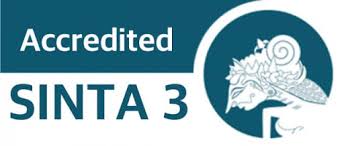Keterlibatan Orangtua dan Masyarakat Dalam Pendidikan Anak Usia Dini
DOI:
https://doi.org/10.54069/attadrib.v3i2.348Keywords:
Parents, Society, Early ChildhoodAbstract
There is the term parental involvement, which not only refers to biological parents but also refers to people who take care of children. For example, grandparents, aunts, or others. In other words, the parent in question is someone who provides care for the child in question. Parental participation in educating children is a form of parental participation that shows commitment, dedication, and involvement of parents in children's education. In addition, community participation cannot be separated from the educational development of a child. In other words, the role and involvement of parents and society have a close relationship with individual education.
Downloads
References
Baumrind, D. 1971. Current Patterns of Parental Authority, Developmental Psychology Monographs. London: Foresman and Company, Glenview.
Epstein, J. & Sanders, M.G. 2000. Connecting home, school and community: New direction for social research. In M. Halliman (Ed.) Connecting home, school, and community (hlm, 128-145). New York: Plenum Press
Hill, N.E. & Craft, S.A. 2003. Parent-school involment and school performance: Mediated pathways among socioeconomically comparable African American and Euro-American families. Journal of Educational Psychology, 95, 74-83
Fiah, Rifda El. 2017. Bimbingan dan Konseling Anak Usia Dini. Jakarta: PT. RajaGrafindo Persada
Lickona, Thomas. 2013. Pendidikan Karakter: Panduan Lengkap Mendidik Siswa Menjadi Pintar dan Baik. Bandung: Penerbit Nusa Media
McWayne, C., Hampton, V & Fantuzzo, J. 2004. A multivariate examination of parent involment and the social and academic competencies of urban Taman Kanak-kanak children. Psychology in the Schools, 41, 363-377
Novrinda et al. 2017. Peran Orangtua dalam Pendidikan Anak Usia Dini Ditinjau dari Latar Belakang Pendidikan. Jurnal Potensia. 2(1). 39-46
Persada, et al. 2017. Pelibatan Orangtua pada Pendidikan Anak di SD Sains Islam Al Farabi Sumber Cirebon. Jurnal Educational Management. 6(2): 100-108
Seefeldt, Carol & Barbara A. Wasik. 2006. Pendidikan Anak Usia Dini: Menyiapkan Anak Usia Tiga, Empat, dan Lima Tahun Masuk Sekolah (Edisi Revisi). Jakarta: PT. Indeks
Sobur, Alex. 2016. Psikologi Umum: Edisi Revisi. Bandung: CV Pustaka Setia
Departemen Pendidikan Nasional. 2003. Undang-Undang Republik Indonesia Nomor 20 Tahun 2003 tentang Sistem Pendidikan Nasional. Jakarta: Depertemen Pendidikan Nasional.
Vanderwalkewr, N.C. 1908. The Taman Kanak-kanak in American Education. New York: Macmillan
Azis, A., Abou-Samra, R., & Aprilianto, A. (2022). Online Assessment of Islamic Religious Education Learning. Tafkir: Interdisciplinary Journal of Islamic Education, 3(1), Art. 1. https://doi.org/10.31538/tijie.v3i1.114
Ikramullah, I., & Sirojuddin, A. (2020). Optimalisasi Manajemen Sekolah Dalam Menerapkan Pendidikan Inklusi di Sekolah Dasar. Munaddhomah: Jurnal Manajemen Pendidikan Islam, 1(2), Art. 2. https://doi.org/10.31538/munaddhomah.v1i2.36
Inco, B., & Rofiq, M. H. (2022). Strategi Guru Pendidikan Agama Islam dalam Menumbuhkan Nilai-Nilai Religius. Chalim Journal of Teaching and Learning (CJoTL), 2(1), Art. 1.
Maptuhah, M., & Juhji, J. (2021). Pengaruh Perhatian Orangtua dalam Pembelajaran daring terhadap Motivasi Belajar Peserta Didik Madrasah Tsanawiyah. Attadrib: Jurnal Pendidikan Guru Madrasah Ibtidaiyah, 4(1), Art. 1. https://doi.org/10.54069/attadrib.v4i1.127
Sandria, A., Asy’ari, H., & Fatimah, F. S. (2022). Pembentukan Karakter Religius Melalui Pembelajaran Berpusat pada Siswa Madrasah Aliyah Negeri. At-Tadzkir: Islamic Education Journal, 1(1), Art. 1.
Downloads
Published
How to Cite
Issue
Section
License
Copyright (c) 2020 Dwi Bhakti Indri M

This work is licensed under a Creative Commons Attribution-ShareAlike 4.0 International License.





